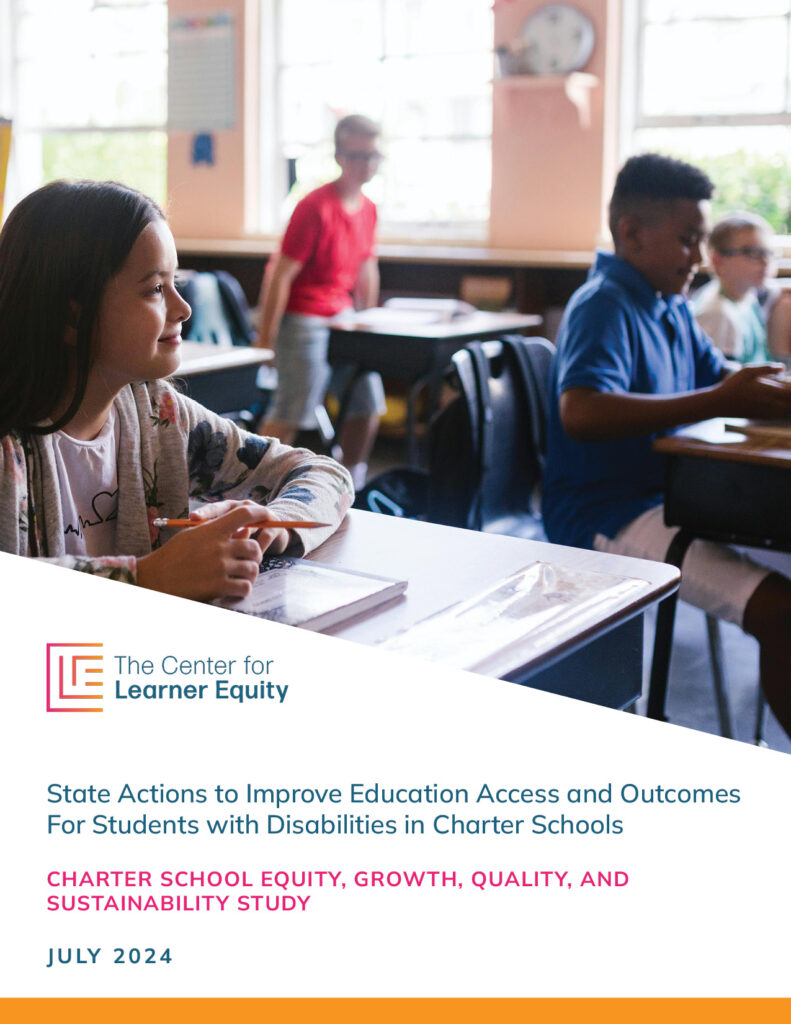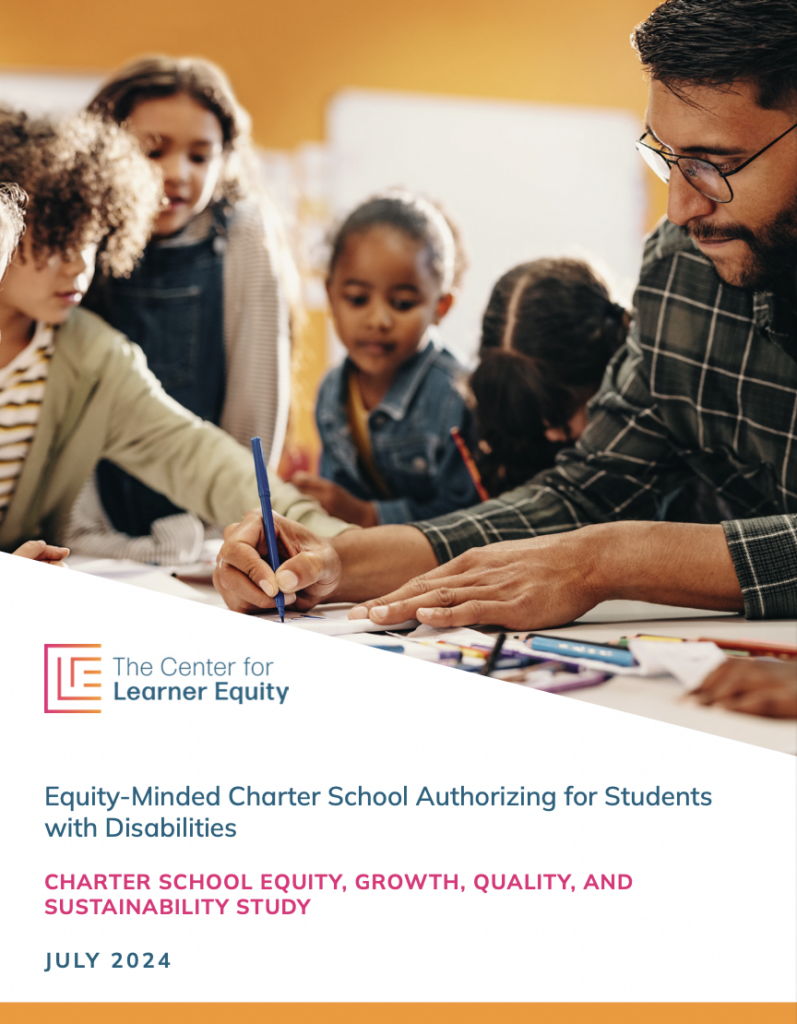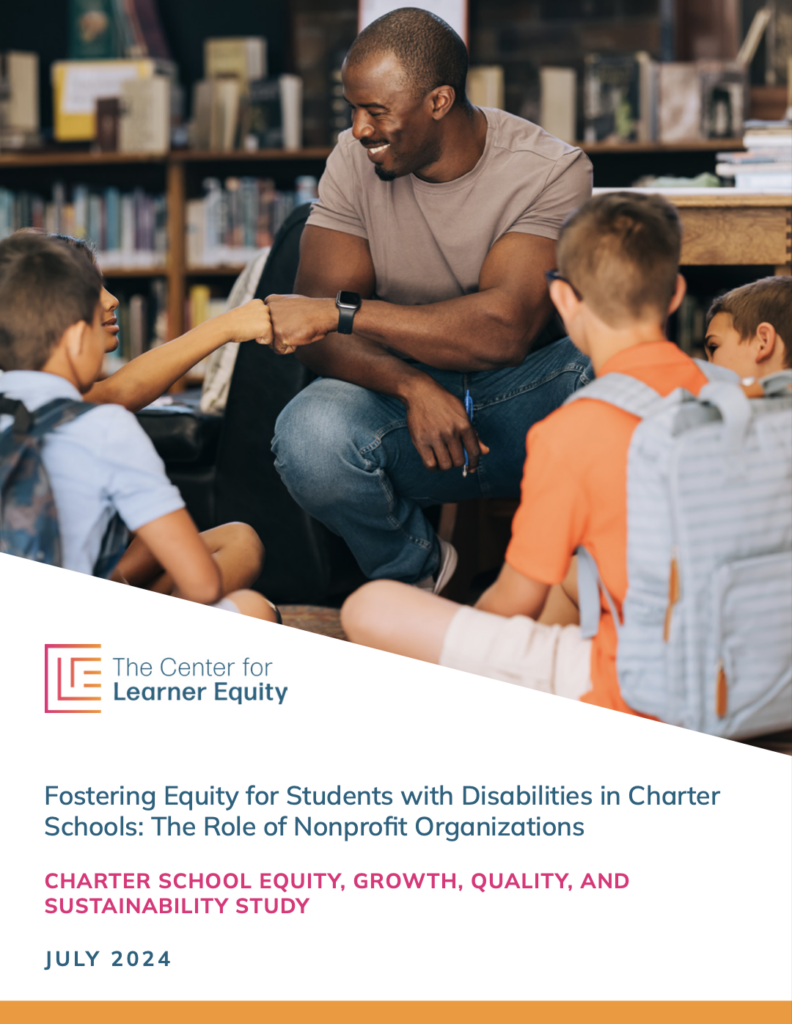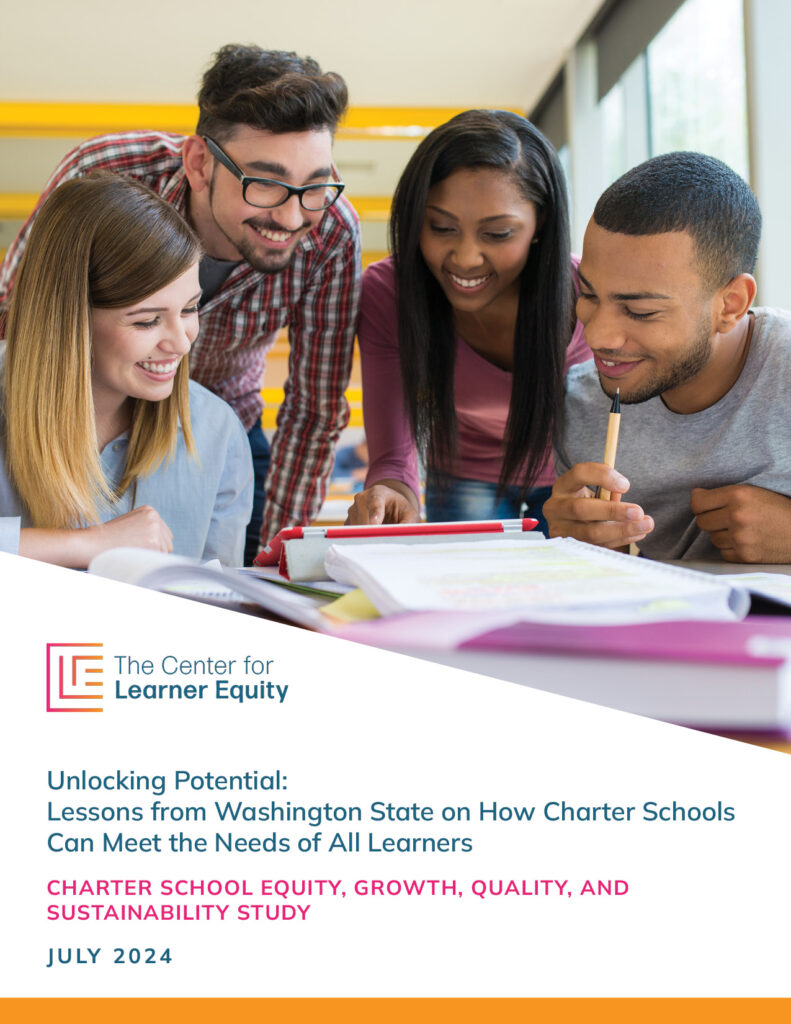The two-year research study highlights how state policymakers, authorizers, nonprofits, charter management organizations, and individual schools can improve the educational experiences of students with disabilities.
The Charter School Equity, Growth, Quality, and Sustainability Study is a research initiative that examines and documents efforts to improve the experiences of students with disabilities in the charter school sector. CLE conducted a thorough study, including scanning journalistic reports, interviewing key experts, and conducting a literature review to identify and explore actions taken by stakeholders. It also emphasized high-leverage practices for students with disabilities, particularly BIPOC students. The study resulted in a series of stakeholder reports and a case study of a dynamic charter ecosystem in Washington State, highlighting how state policymakers, authorizers, nonprofits, charter management organizations, and schools can improve the educational experiences of students with disabilities.
- Understanding Impact on Growth and Sustainability: Investigating how the experiences of students with disabilities influence the growth and sustainability of charter schools.
- Improving Student Experiences: Identifying actionable steps by key stakeholders to improve the educational experiences of students with disabilities in charter schools.
State Actions to Improve Education Access and Outcomes for Students with Disabilities in Charter Schools
Key Audience: State Policymakers
The report emphasizes the importance of state actions in improving educational opportunities for historically marginalized students, particularly those with disabilities. It highlights the existing achievement gaps and challenges faced by students with disabilities, especially those from minority groups. The report suggests that states have a critical role in strengthening charter schools’ capacity to meet the needs of students with disabilities, but it also points out that the current state actions in this area have been limited, primarily focusing on ensuring compliance with laws rather than addressing resource gaps or improving educational outcomes.
Equity-Minded Charter School Authorizing for Students with Disabilities
Key Audience: Charter School Authorizers
Authorizers are uniquely positioned to influence educational opportunities for students with disabilities in the charter sector. However, to date, only a small number of authorizers have taken proactive steps to address the needs of students with disabilities or to hold charter schools accountable for meeting ambitious learning targets for them. This report profiles the efforts of equity-minded authorizers who have taken actions to facilitate charter schools meeting the needs of students with disabilities. We draw upon interviews with 31 staff members working at 21 charter school authorizers selected based on their implementation of practices that aim to strengthen charter schools’ commitment to and success in educating students with disabilities.
Fostering Equity for Students with Disabilities in Charter Schools: The Role of Nonprofit Organizations
Key Audience: Nonprofit Leaders
Nonprofit organizations (NPOs) have played a pivotal role in developing the charter sector. This report profiles the efforts of NPOs that work with or alongside charter schools to ensure the sector meets the needs of students with disabilities. We profile the work of 30 influential NPOs that shape the experiences of students with disabilities and charter schools, drawing upon 19 interviews with leaders of NPOs and reviews of publicly available information. We use these data to understand NPOs’ roles in the charter sector and their specific actions to strengthen charter schools’ commitment to and organizational capacity for equitably educating students with disabilities.
Unlocking Potential: Lessons from Washington State on How Charter Schools Can Meet the Needs of All Learners
Key Audience: Washington State Education Leaders
This report considers the efforts of one state–Washington–to design a charter sector that meets the needs of students with disabilities. Supporters of charter schools in Washington were determined to build equity and inclusion into the design of the charter sector, which emerged after a controversial statewide initiative in 2012. Washington’s charter law includes a legal mandate to authorize charter schools designed to serve at-risk students and, as detailed below, philanthropic investments supported the development of an ecosystem of technical assistance and professional service providers designed to support the implementation of effective practices for educating students with disabilities. How these efforts have paid off and where they have proven insufficient provides a window into how education leaders–policymakers, authorizers, technical assistance providers, advocates, and funders–can act to support charter schools to meet the needs of all learners.
The Charter School Advantage: How Charter Schools Can Advance the Educational Solutions that Students with Disabilities Need
Key Audience: Charter School Leaders
This report focuses on how charter schools and CMOs can systematize the benefits of their autonomy, drawing on autonomy to construct teaching and learning systems that are equity-focused, address the learning needs of students with disabilities, and identify the factors that shape their success. The study is grounded in a purposive sample of 29 schools and CMOs selected for their use one or more equitable practices designed to meet the needs of students with disabilities. The practices themselves vary from the ordinary to the unusual, but what unites them is the role they play in multifaceted systems to support individual student learning needs.





Comments are closed.